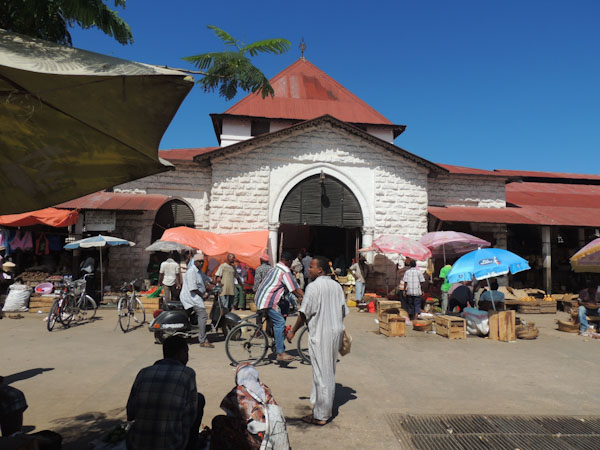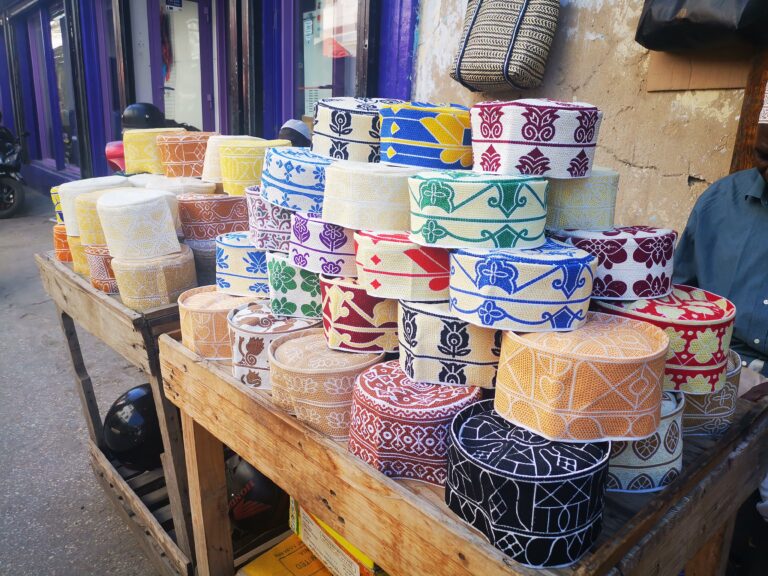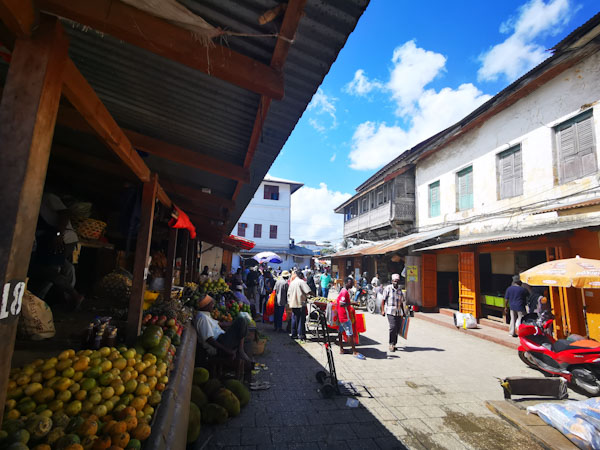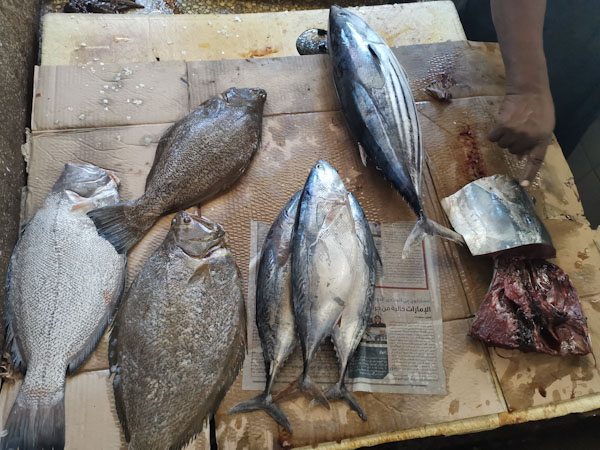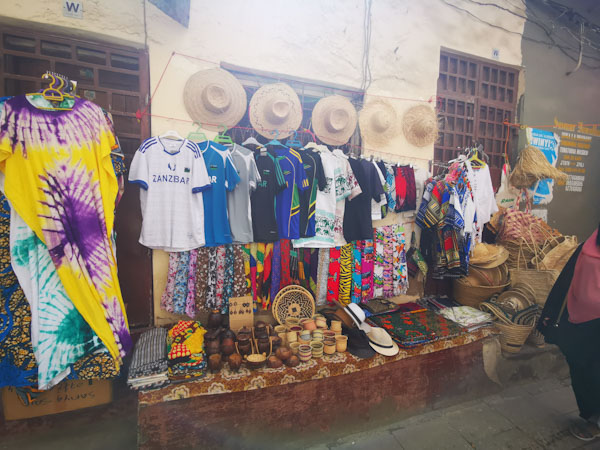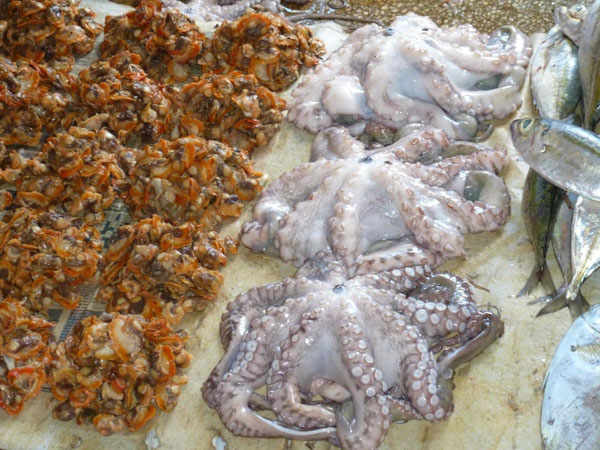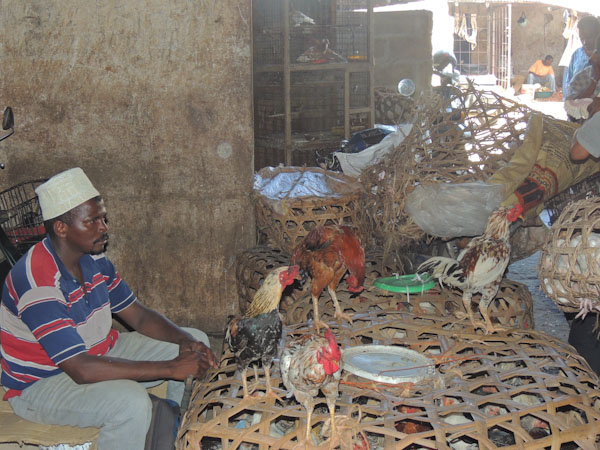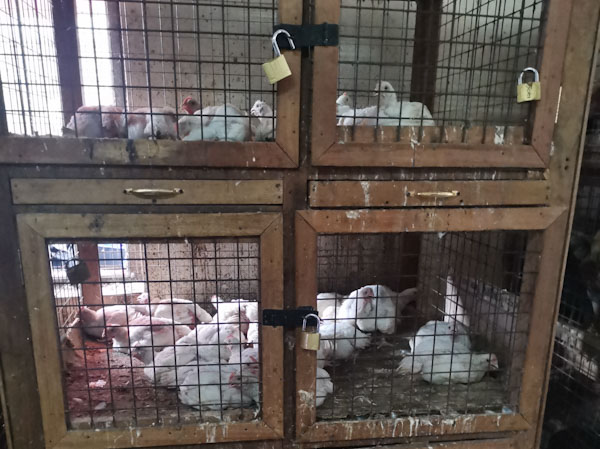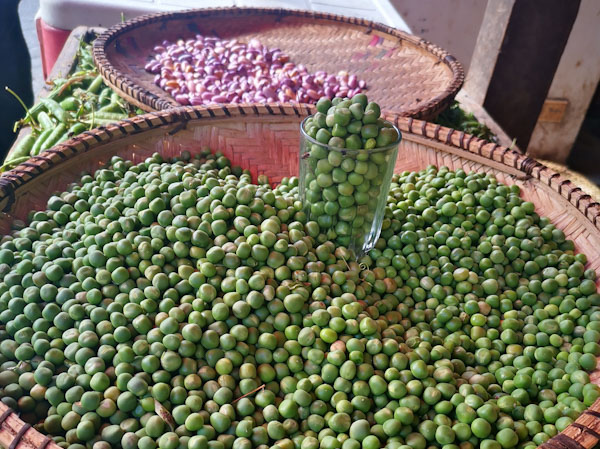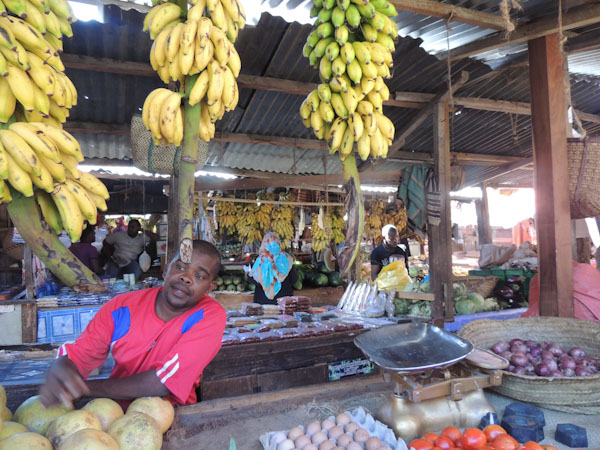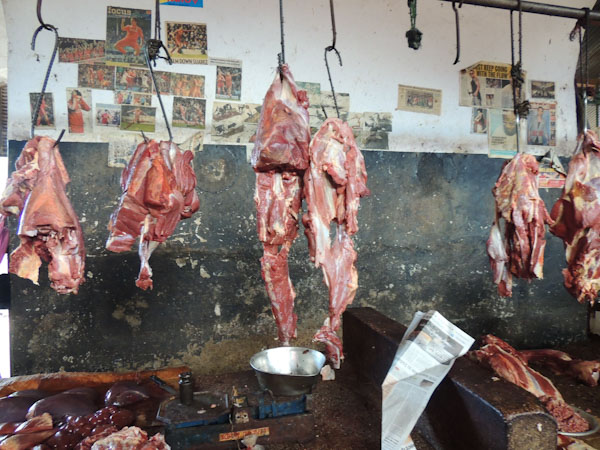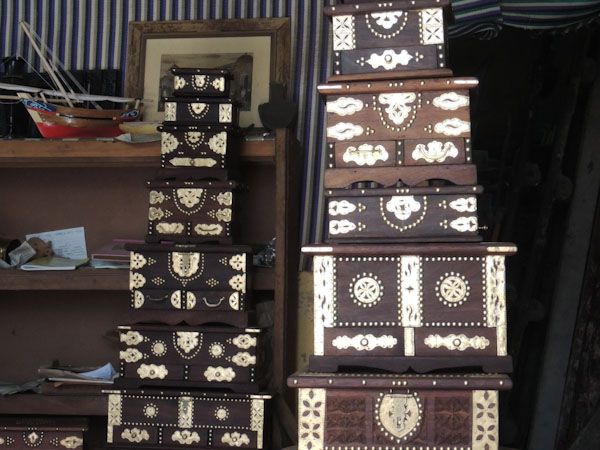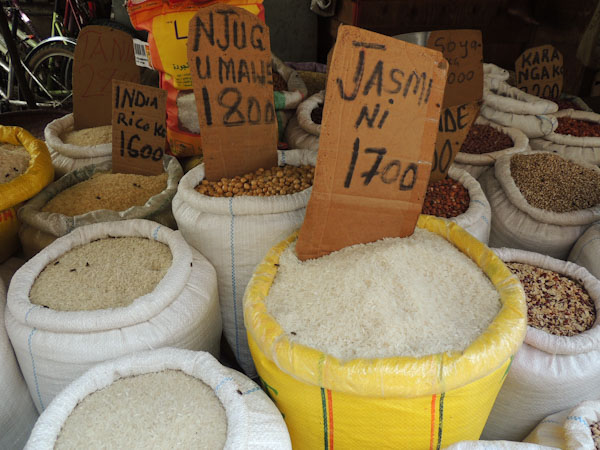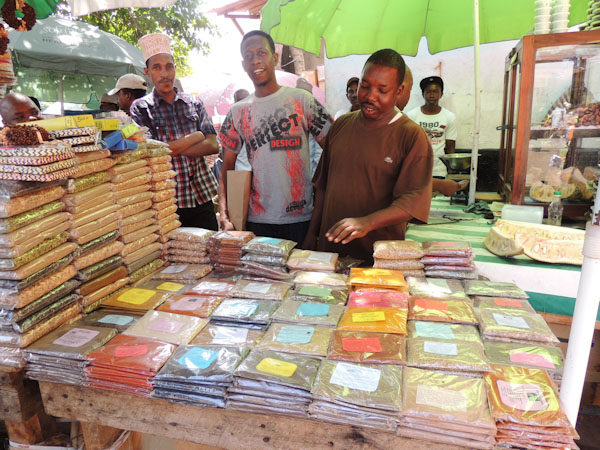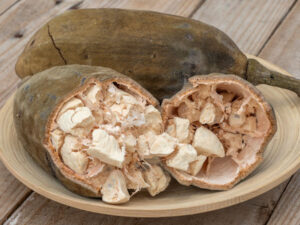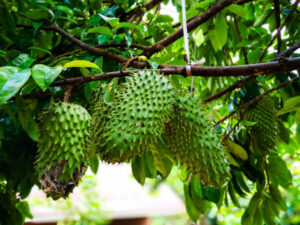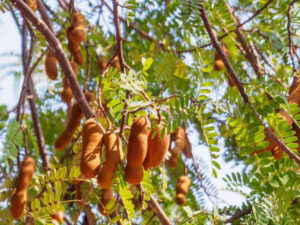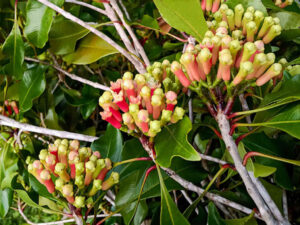Darajani Market
Exploring the Heart of Zanzibar’s Vibrant Soul
Tucked in the bustling center of Stone Town, Zanzibar’s historic capital, Darajani Market is more than just a marketplace – it’s a living, breathing celebration of Swahili culture, island life, and the rich bounty of the Indian Ocean.
Originally built in 1904 during the British Protectorate era, the market was financed by Seyyid Sir Ali bin Hamoud, the eighth Sultan of Zanzibar. Over the decades, it has expanded into the island’s largest and busiest market, retaining much of its original character while adapting to modern-day life. Locally, it is also known as Estella Market, a name inherited from a British colonial administrator.
Today, Darajani is not only a key hub for commerce but a vibrant crossroads of history, culture, and community. Whether you’re a curious traveler, a foodie, or a culture enthusiast, a visit to Darajani Market is an unforgettable journey into the island’s daily rhythms.
Where to Find It
Located just a short walk from the historic sites of Stone Town, Darajani Market lies along Darajani Road, near the Anglican Cathedral. The moment you approach, you’ll be swept into a symphony of sights, scents, and sounds – a feast for the senses that draws locals and visitors alike.
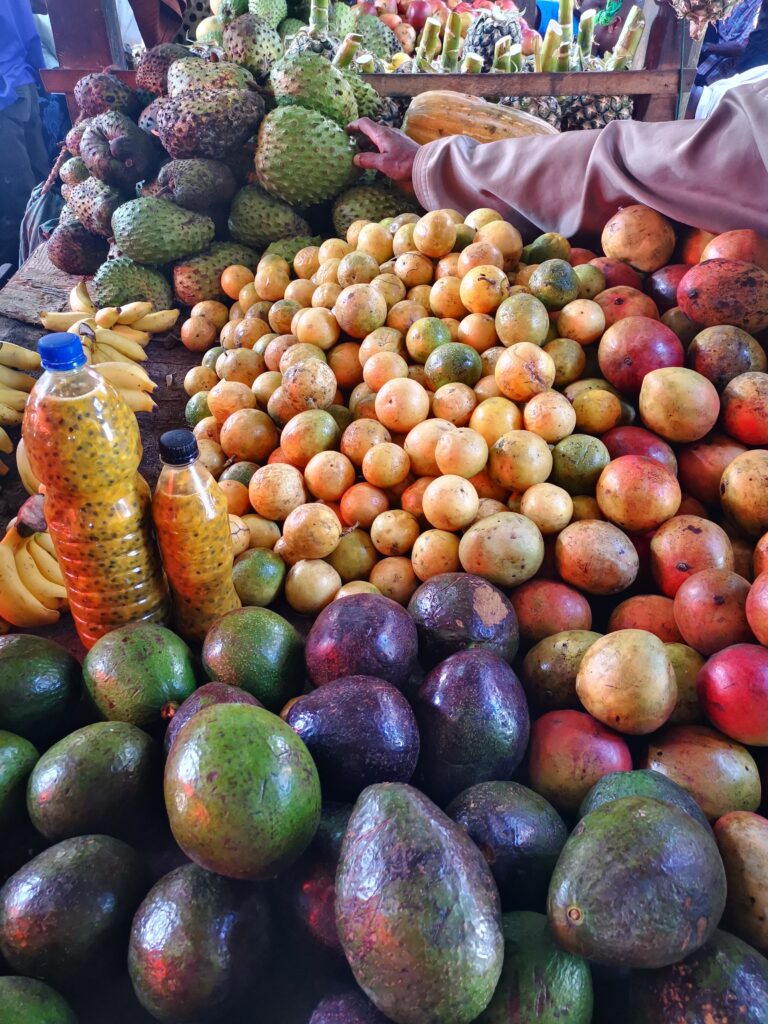
What to Expect
This lively market is divided into several sections, each offering a different slice of Zanzibari life:
Fresh Produce: Pyramids of ripe mangoes, piles of lychees, and baskets brimming with bananas, guavas, papayas, and jackfruit. You’ll find local staples like cassava, yams, plantains, and sweet potatoes stacked in earthy abundance.
Spices: Zanzibar is known as the “Spice Island,” and here you can see why. Cardamom, cinnamon, nutmeg, vanilla, cloves, turmeric – sold in little sachets or by the handful, their fragrances drift through the air like an exotic perfume.
Meat and Fish: The fish section is a whirlwind of activity in the morning, with fresh catches from the Indian Ocean – octopus, red snapper, tuna, and prawns – laid out on ice or in large baskets.
Textiles and Household Goods: Colorful kangas flutter in the breeze, and handwoven baskets and kitchen utensils line the stalls, offering a glimpse into daily Zanzibari life.
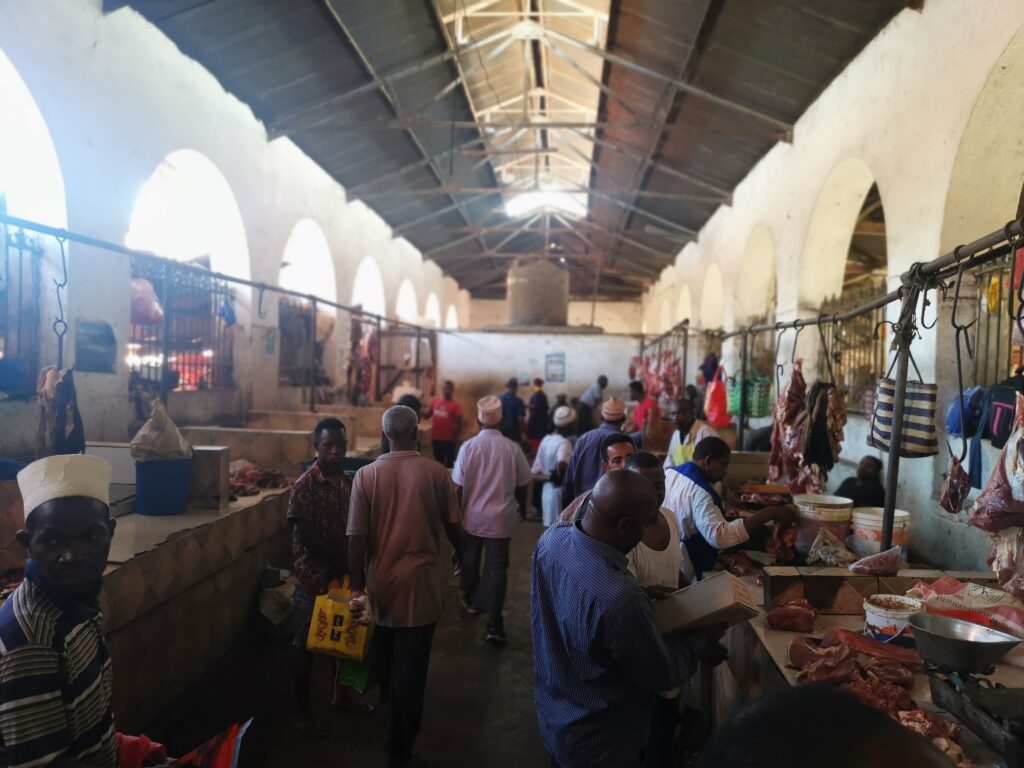
A Day at the Market
Begin your visit in the early morning, when the market is at its liveliest and the sun casts a golden glow over the ancient buildings of Stone Town. Locals haggle over prices, young boys dart between stalls with trays of chapati and chai, and merchants call out their offers with practiced charm.
Walk slowly. Let your eyes feast on the kaleidoscope of colors: fiery red chilies, sun-bright oranges, deep purple eggplants, and leafy greens freshly picked from nearby farms.
Pause to inhale – the scent of ripe pineapple mixes with the earthy musk of turmeric and the sharp brine of freshly caught seafood. Your senses will awaken with every step.
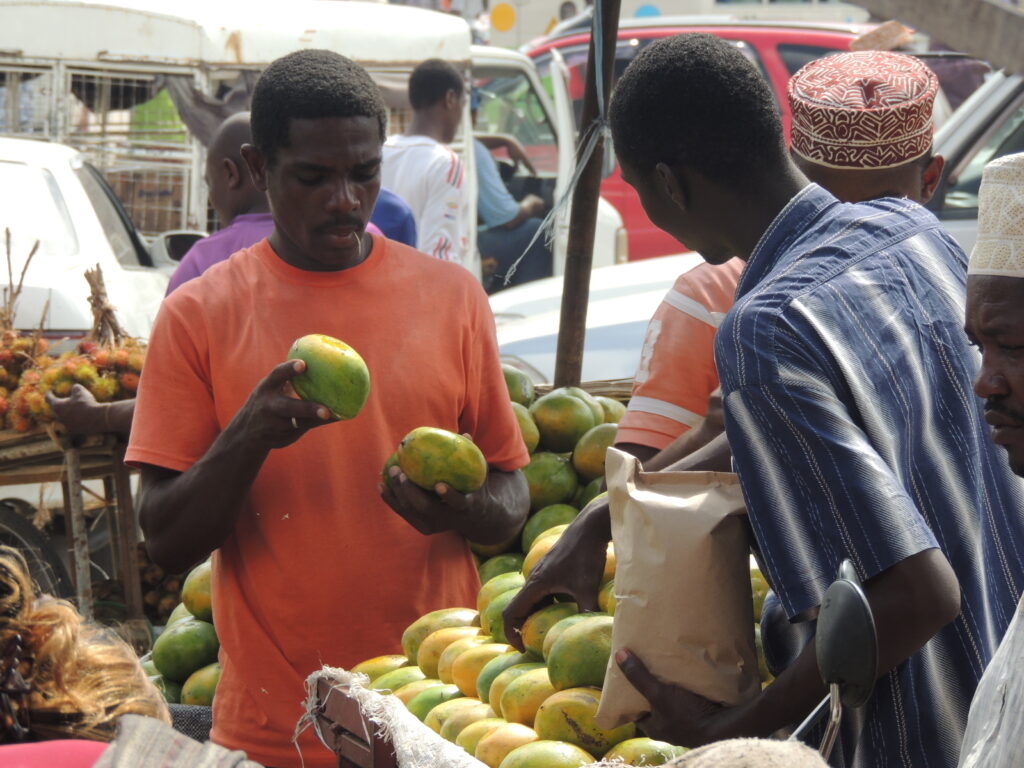
Fruits with a Healing Touch
While indulging in tropical sweetness, you’ll also discover that many of these fruits and plants have medicinal uses:
Baobab Fruit: Often sold dried or powdered, it’s rich in Vitamin C and antioxidants. Locals use it to boost immunity and improve digestion.
Soursop (Graviola): This spiky green fruit with creamy white flesh is believed to have anti-inflammatory and anti-cancer properties.
Tamarind: Both a spice and a fruit, tamarind is commonly used to soothe stomach issues and cleanse the blood.
Cloves: Grown on the island, cloves are not just for cooking — they are used in traditional remedies for toothaches and colds.
Souvenir Shopping Tip
Look beyond the tourist stalls – wander deeper into the market where locals shop. You’ll find authentic, handcrafted items often at better prices. Don’t be afraid to bargain politely – it’s expected and adds to the charm of the experience. A smile and a little Swahili (“Asante sana!” means “Thank you very much”) will go a long way!
Top 5 Souvenirs to Buy at Darajani Market
Zanzibari Spices – Fresh cloves, cinnamon sticks, vanilla pods, and local spice blends like “pilau masala.”
Kangas & Kikois – Brightly patterned fabrics with Swahili proverbs, worn as wraps or scarves.
Handwoven Baskets – Made from palm leaves, perfect for home decor or storage.
Natural Soaps & Oils – Coconut oil, clove oil, and handmade soaps scented with lemongrass or hibiscus.
Wooden Utensils or Carvings – Small, beautiful pieces that bring a touch of the island to your kitchen.
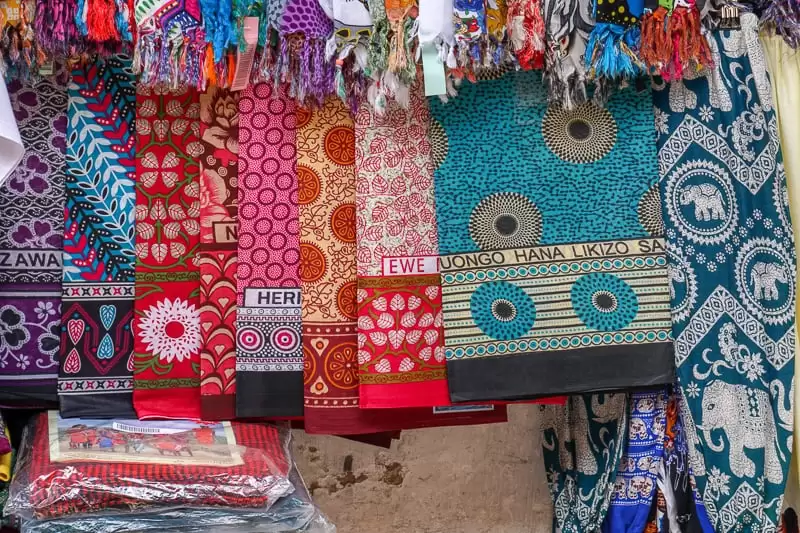
Tips for Visiting
Bring Small Change: Most vendors prefer cash and may not have change for large bills.
Go Early: The freshest produce and fish are sold in the morning.
Ask Before Photographing: Out of respect, always ask a vendor before snapping a photo.
Stay Hydrated: It can get hot and humid; bring water or enjoy a fresh coconut right in the market!
Why You Shouldn’t Miss It
Darajani Market isn’t just a place to shop – it’s a window into the heart of Zanzibar. It’s where tradition meets daily life, where old Swahili customs mix with the rhythms of a modern East African island.
Whether you’re sampling exotic fruit, learning about local remedies, or simply people-watching, this market offers a deep, colorful dive into Zanzibari culture – and maybe, just maybe, a few treasures to take home.
Darajani Market is not just a place to shop - it's where Zanzibar breathes, tastes, and tells its story through spice-laced air, vibrant colors, and the rhythm of daily life
